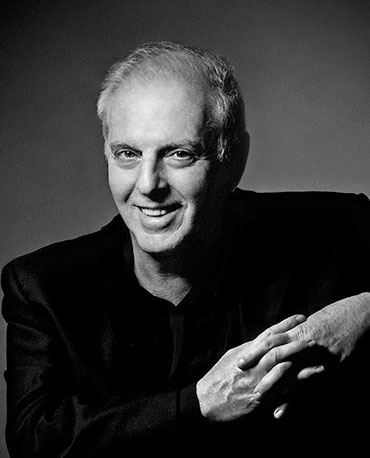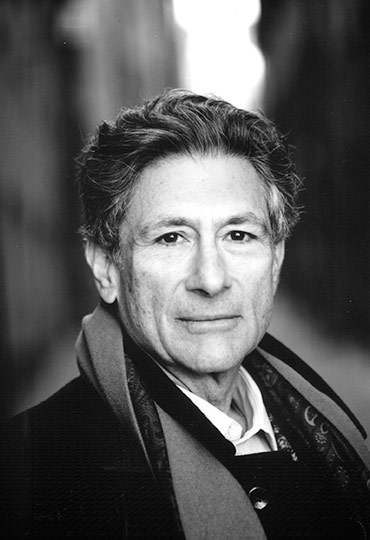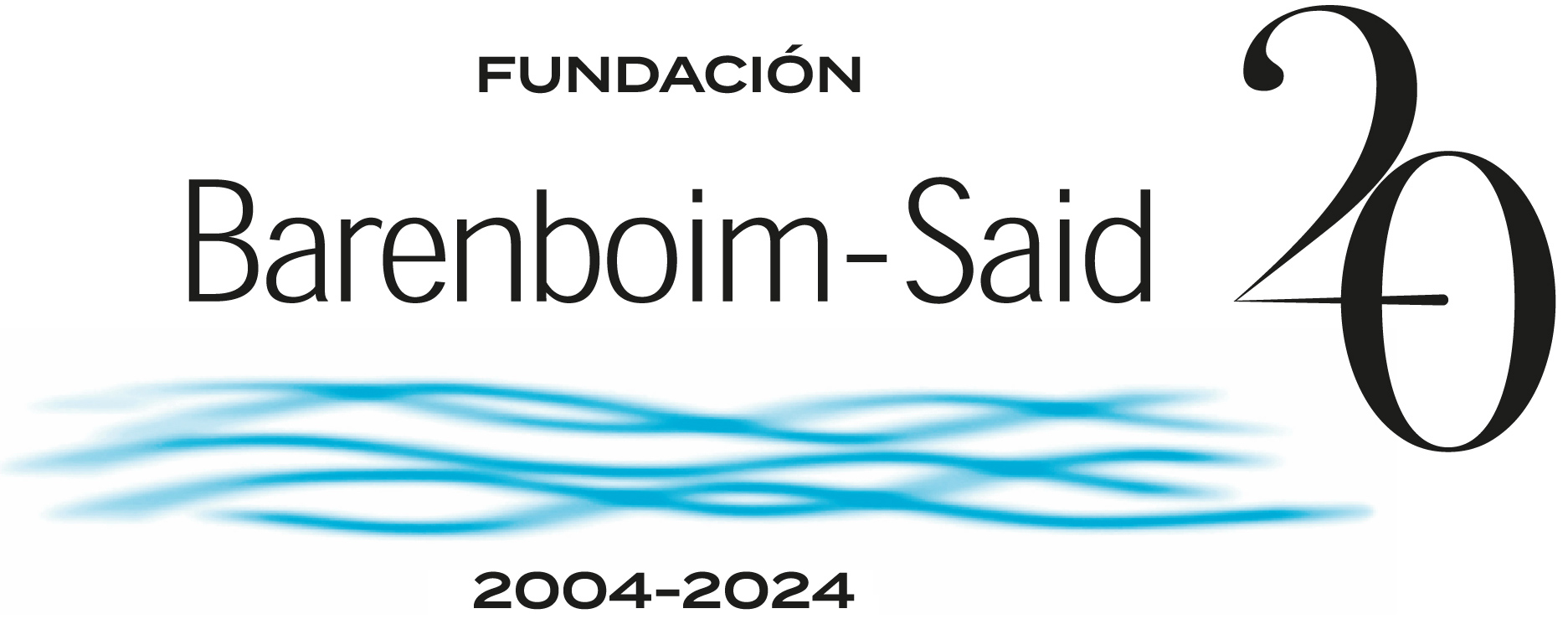Founders
FOUNDERS
The Barenboim-Said Andalusian Public Foundation takes its name from two indisputable figures of the cultural and intellectual scenes of the 20th and beginning of the 21st centuries. The Argentinean-Israeli pianist and conductor Daniel Barenboim and the Palestinian intellectual and philosopher Edward Said were, and are, important references for the development and implementation of the universal values of dialogue, coexistence and culture of peace.
The importance of their work goes beyond their professional fields –music interpretation and orchestral conducting, on the one hand, and thinking and literary critic production, on the other-. Since they met in London in 1993, Daniel Barenboim and Edward Said maintained a fruitful friendship and which was the origin of the West-Eastern Divan Orchestra, created in Weimar in 1999.
DANIEL BARENBOIM - (BUENOS AIRES, 1942)
It is essential to raise people’s awareness about the need of music education as a core element of culture.
Daniel Barenboim debuted as a solo pianist at the age of ten in Vienna and Rome, and as a conductor in 1967, with the London Philharmonic Orchestra. From 1975 to 1989, he was the principal conductor of the Paris Orchestre. From 1991 to 2006 he was the principal conductor of the Chicago Symphony Orchestra, as well as the artistic director of the Teatro alla Scala in Milan, from 2011 to 2014. Since 1992 he is the principal conductor and the artistic director of the Staatsoper Berlin.
Throughout his career, Daniel Barenboim has received many important awards, including six Grammy Awards, the Tolerance Prize by the Evangelische Akademie Tutzing or the Wolf Foundation’s Arts Prize in the Knesset in Jerusalem, among others. In 2002, Daniel Barenboim and Edward Said were awarded the Prince of Asturias Concord Award in the Spanish town of Oviedo for their “generous and laudable work for social harmony and peace, symbolized in the collaboration among young musicians who, getting over their historical antagonisms, encourage dialogue and reflection”.
In 2007, United Nations Secretary General, Ban Ki Moon, named him United Nations Messenger of Peace, for promoting the spirit of peace and tolerance through the universal language of music. He was also awarded an Honorary Doctor of Music degree by Oxford University. In 2008 he obtained the honorary citizenship of Palestine, becoming the first person with both Israeli and Palestinian passports.


EDWARD SAID - (JERUSALÉN, 1935 - NUEVA YORK, 2003)
In our work and planning and discussions our main principle is that separation between peoples is not a solution for any of the problems that divide peoples. And certainly ignorance of the other provides no help whatever. Cooperation and co-existence of the kind that music lived as we have lived, performed, shared and loved it together, might be. I, for one, am full of optimism despite the darkening sky and the seemingly hopeless situation for the time being that encloses us all.
Edward W. Said was born in 1935 in Jerusalem. He was raised in Cairo, and studied in the United States at Princeton and Harvard. In 1963, Edward W. Said began his teaching career at Columbia University in New York, where he held the preeminent position of University Professor of English and Comparative Literature until his death in 2003.
He wrote more than 20 books, which have been translated into 30 languages. His ground-breaking work Orientalism opened up new horizons in the study of post-colonialism. Edward W. Said was active in the editorial committees of numerous magazines and journals and lectured at more than 200 universities in North America, Europe, Africa, and Asia. A gifted pianist, he also was the music critic for The Nation for many years. In the political sphere, Edward W. Said was a major voice on the situation in Palestine and an unflinching proponent of justice and self-determination for all.
Edward W. Said was the president of the Modern Language Association as well as a member of the American Academy of Arts and Sciences, the Royal Society of Literature, the American Philosophical Society, and Honorary Fellow of King’s College, Cambridge. He also was a member of the executive board of PEN International until 1998.
His widow, Mariam Said, has continued spreading Edward Said’s legacy. She is the Honorary President of the Foundation since it was established.
WHAT MOVES US?
Music-lovers
We love classical music. Therefore, one of the inspiring principles of our Foundation is the integration of music in the society.
Education
We believe in the value of music as an educational tool that helps children and adults to recognize, express and socialize themselves.
Constancy
We promote cultural exchanges, as well as a spirit of peace, dialogue and conciliation between people through music.
CSR
We have a strong commitment to society by promoting music and cooperation projects.



